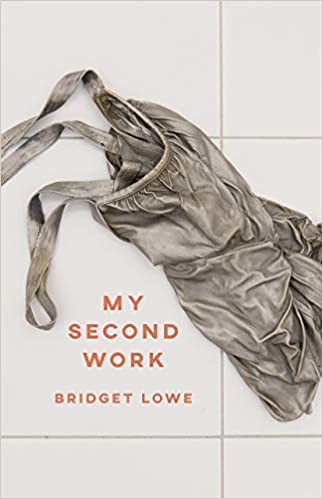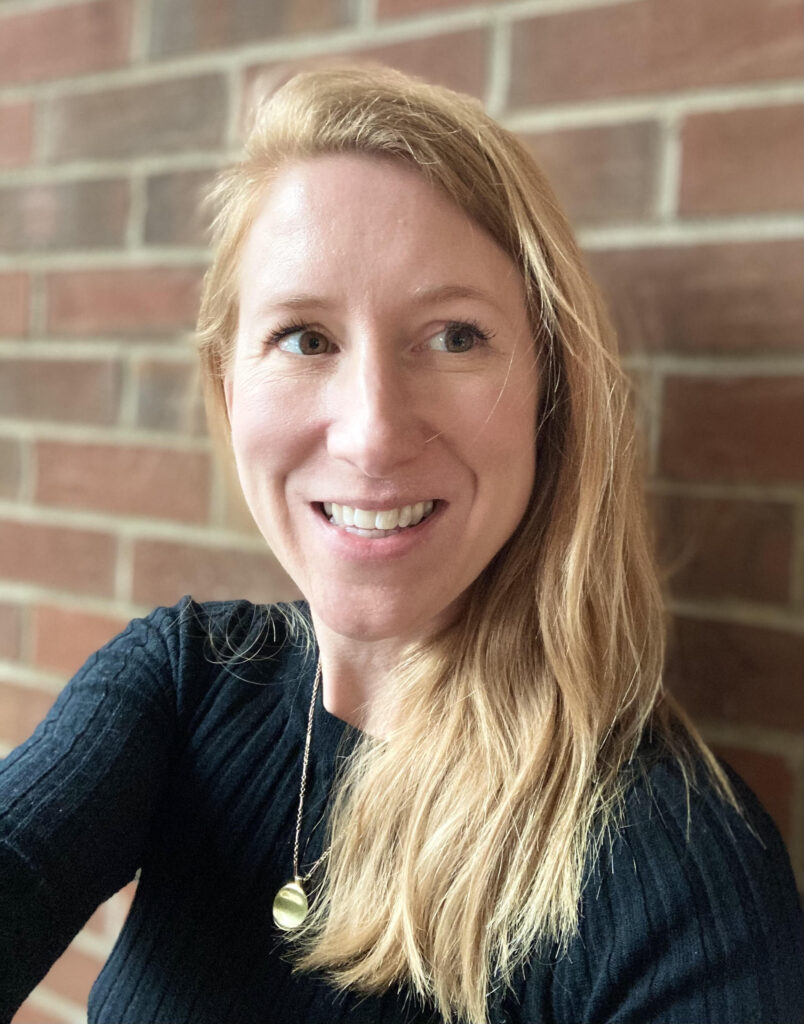“Dream of Singular Meaning”: A Conversation with Bridget Lowe


Bridget Lowe is the author of My Second Work (2020) and At the Autopsy of Vaslav Nijinsky (2013), both from Carnegie Mellon University Press. Her poems have been published in the New Yorker, Best American Poetry, The New Republic, Parnassus, Poetry, and other publications. Her honors include the Emily Dickinson Award from the Poetry Society of America, a “Discovery”/Boston Review Prize, a fellowship to the Bread Loaf Writers’ Conference, and the Rona Jaffe Foundation Fellowship to MacDowell for an extended residency. She lives in Kansas City, where she was born.
My Second Work, Lowe’s second collection of poetry—a brilliant, lyrical, and deeply empathic book—looks through lenses of myth and parable to explore collective trauma, family history, memory, and the strangeness that is living. As James Longenbach writes, “These poems love the world that does not always love them back.” The book made its debut just in time for the arrival COVID-19, so Lowe was generous enough to visit a UCM advanced poetry course virtually to discuss My Second Work. UCM creative writing student Devin Jones interviews her below.
Devin Jones: Congratulations on your newest book, My Second Work. A mighty accomplishment for sure—two books under your belt now. Can you describe how the writing experience for this book differs from the writing experience of your first book? Are there any tried-and-true methods for you when it comes to writing poetry?
Bridget Lowe: I have no tried-and-true methods. I wish I did. I can say that a poem usually gets going once I can begin to locate the voice spatially. It’s really crucial for me, for some reason, to understand where the speaker is located in the poem—I need to know what the speaker’s vantage point is, their access, if they are viewing the scene from far away or close up, are they facing a crowd…I can feel if the speaker is running toward something or running away from it. And this perspective is always very important for me in getting the poem to feel the way I want it to feel, which is driven by voice, urgent and true. Then it’s a long process of trying to figure out whatever glimmering horizon the whole endeavor is kind of trudging toward.
I had two babies during the writing of My Second Work so everything I had learned about my own process from completing my first book [At the Autopsy of Vaslav Nijinsky] was useless to me. But I also have a kind of long-lasting amnesia when a book is completed—I truly can’t recollect how the poems came to be. The more time that goes by, the more I will start to romanticize the experience of writing My Second Work, but in recent memory what remains is the pain of feeling an urgent need to communicate via poetry and not having the time or space to nurture the constancy of that impulse with the same ease I was afforded with my first book.
DJ: The cover of My Second Work is stunning and drew me in as a reader before I even picked the book up. As I understand it, according to the notes, it is a bronze sculpture? Would you be willing to share a little more as to how you came to choose this sculpture as the cover of your book, and what readers can expect from choosing to pick this book up and read it?
BL: The cover is a photograph of a bronze sculpture by the artist Alika Cooper. I fell in love with her work about ten years ago when I read about an opening in L.A. she was featured in. She works in various mediums, including textiles. My Second Work opens with a poem taken from a 18th century needlepoint that I feel communicates with Alika’s work, which has been described as “using gendered techniques of quilting and applique” to contemplate objectification and “the dehumanizing mechanics of a pervasive misogynistic culture.”
I wrote a draft of an email in 2014, long before this book was complete, asking her if she would consider allowing me to use an image of her work on the cover of my next book. I kept it as a kind of lantern on the horizon for myself. Once I had the book complete and my publisher gave me approval, I updated the email draft and sent it to her. It was a wonderful moment for me when she allowed me to use that image from her Wet Suits series. I love that the image suggests so much without telling us exactly what has just occurred – its power is in its echo.
DJ: I would love to hear you speak about your poem, “My First Job”. Form-wise, it seems as though there are multiple ways to read this poem, whether left to right or vertically. How do you see form speaking to content in this poem, and how do you typically read it? Can you talk about the poem’s lack of punctuation?
BL: I laid this one out the way I thought it should be read in terms of pauses and stresses. It looks weird but whenever I tried to add punctuation or shove it into a more typical form it lost its flavor for me. This poem is so close to being entirely too narrative for me, but I felt I could calm some of its obvious straightforwardness by breaking its form. I’m not sure if it worked or not. I laid it out the way I thought it should sound, so this is kind of like sheet music. It’s the same for “My Second Job” –I had to lay it out the way it sounded to me, the way I felt the story would be told in conversation.
DJ: I notice that many of your poems in My Second Work have one-word titles, so the title of the poem “And Now I am Old, and Sad, and Prepared for Whatever Average Fortune Throws My Way” jumps out as distinct. Could you talk about your process for titling your poems? How important, do you think, is a title to its poem?
BL: I love titles. They are the best part of a text in my opinion. I write titles more often than I write poems. In my first book I would begin with a title, and that title would influence the poem, and then the poem would influence the title which I would revise, and then that new title would influence the poem…it’s a kind of discourse with the self that I enjoy. This title allowed me to talk immediately about something – the florid, heightened world of mania versus the same world seen after “healing,” the unique sadness of the loss of an extreme state of mind…without the title it would have taken a lot of exposition to get to that jumping off point with a reader, a lot more narrative that would have made me uncomfortable.
DJ: As I was reading My Second Work, I realize that many of your poems have a narrative, or storytelling quality, though your work reads, at first glance, as strikingly lyrical. Can you talk about the relationship between stories and poetry, and what that means to you and your work specifically? I noticed that the sections in My Second Work are separated with an infinity symbol. As I was reading, I interpreted this symbol to mean that life is an endless cycle of stories, though I’m sure this contains a multitude of meanings. Can you talk about how you see the infinity sign as a dividing symbol in the book?
BL: I love this question, and I love that you notice the narrative elements of the book as well as the infinity symbol. I did choose the symbol as the pause between sections as a representation of the cyclical qualities of the things I was writing about—abuse of power, mental illness, addiction, injustice. But also the cycle of birth and death and rebirth. The last two poems are purposefully birth poems.
Also grief and suffering—we collectively agree to imagine they end at some point, even if that means post-life, but I am skeptical of the concept of healing, of resolution, in this life or any other. I believe more in our dogged determination to make things have meaning. Americans particularly so, because of our country’s unique fusion of Christianity and capitalism—the trained thinking within a model of exchange, or the “dream of singular meaning” as I called it in the poem “Secret Garden of Regrets” in this book. And yet something does seem to push through these structures and deliver people at the foot of love. I have seen spiritual healing happen—so I am committed to this also being true. I am mostly arguing with myself about this through poetry—meaning vs. meaninglessness. It seems one belongs to love and one belongs to trauma. Or maybe both are true and real at once.
That’s where narrative comes in for me—I want to connect, deeply, to other people through poetry, but I don’t want to make meaning where meaning isn’t. I go off instinct for how much narrative is required to achieve that end. I am skeptical of narrative because it doesn’t match the complexity of the real the way the lyric can for me. Narrative is already one layer of meaning being applied to what the language is attempting to express. Of course these categories are messy and not fully distinct…
DJ: I thoroughly enjoyed reading My Second Work and feeling and empathizing with all of your stories included, and so I must ask: do you plan to write another book? If so, how is that writing process so far? Any teasers you could possibly give us?
BL: Thank you so much Devin for reading it, feeling it and most of all empathizing. I am working on another book, but it hasn’t told me what it wants to be yet. I have the raw material, a big slab of stone, but the sculpting process has been slow, quiet, frustrating.
With My Second Work, I had a quick flash of what the book wanted to be—a medieval tapestry splattered with neon paint—and this vision remained as the guiding principle for the collection of poems. This mattered quite a bit to me, because I could see with each new poem how it might fulfill its destiny within this vision, even if it was not wholly familiar to me as what I would call a “good poem.” So I was more comfortable with my own experimentation and challenging my own ideas of what a poem should (could) be. This guiding vision also captured the texture I wanted the book to have—something with physicality, dimensional detail, knots of thread, strings hanging off, the way only a woven thing can be tactile.
l I know at this point is that this new book doesn’t want to be verse, that it wants to be more of a dialogue, a discourse, with other beloved texts – and yet somehow I want it to be more immediately personal than anything I’ve written before. Please wish me luck.
